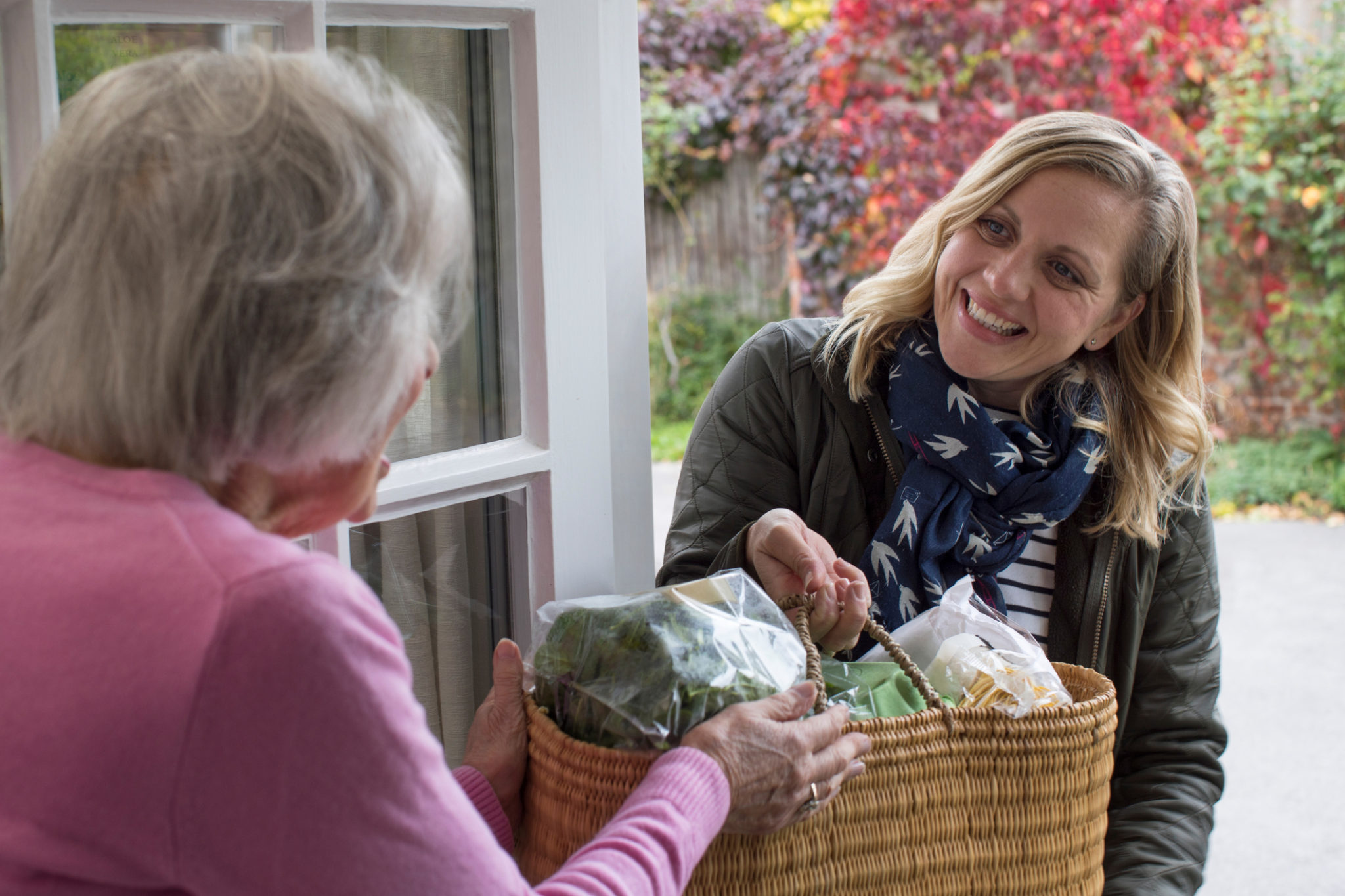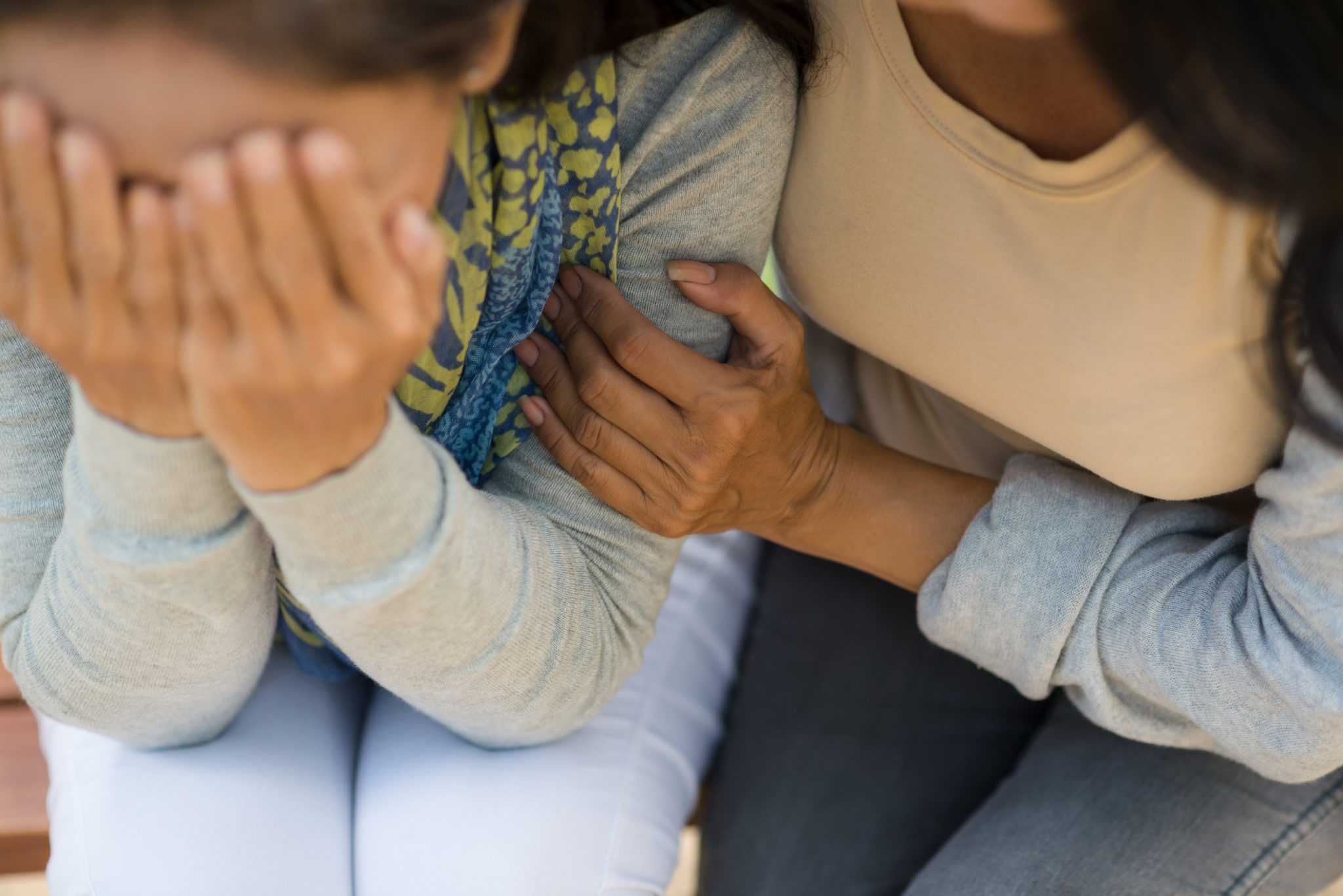Death is a part of life, but it’s not always something we like to think about. When someone we know loses a loved one, we may freeze, overthink how we should act, and feel awkward about saying or doing the wrong thing. HopeHealth’s expert grief counselor, Guy Murgo, says that those reactions are completely normal, but he cautions that our reactions must not stop us from offering support to a grieving person. The most important thing anyone can do for a someone who has lost a loved one is be there for them. But, how?
Murgo draws upon his personal experience with immense grief and sorrow after losing his wife of 34 years. He also applies his professional experience as a grief counselor to offer meaningful insights into how to talk to and best support someone who is grieving.
Many of us have accidentally been saying and doing unhelpful things all along. Why? Myths about grief are commonplace in our society. Guy hopes to change this by setting the record straight.

We struggle with what to say to someone who is grieving because there is no quick fix.
When someone is grieving, it is very painful and the people around the grieving person may not be as emotionally impacted. They are going on with their normal routines and then they are confronted with someone who has lost a huge part of his or her life. That is a dramatic shift for the person who is not grieving. People like to avoid pain, and we struggle with the fact that there isn’t a quick fix, and that makes us feel like we don’t know what to say. But, don’t let that stop you from interacting with the person.
Not hearing from you hurts.
What frequently hurts and frustrates someone in the throughs of grief is not hearing from the people close to them. A note, an email, a text, a call—all of those things are very much appreciated. It tells the person that others care.
Your individuality should determine the support you provide.
Many people will say “call me if you need anything,” but the person who is grieving often doesn’t know what they need, and really does not want to impose on others. Also, not everyone is able to sit down and listen to someone’s emotional pain. It’s helpful to tell a grieving person what you can offer. Let them know you will bring a meal every Friday, help them clean their house once a week, cut the grass for them, sit and watch a movie, run errands, pack their kids’ lunches for the week, or go on a walk with them. Ask if your suggestion would be okay and suggest a concrete time that you will be there to provide that support. We all have different gifts and sharing them with someone in deep emotional pain can be very helpful.

Ask about today.
Today is a good word to use. An individual who is grieving can understand what that means. They may have no idea how to answer how they are doing in general and what that means, but they feel capable of telling you what happened and how they feel today.
Honor. Don’t minimize or judge.
Grief brings up very heavy, complex emotions. It’s important to remember that listening to the grieving individuals’ thoughts and feelings is paramount, and it’s not your place to minimize or judge what they say.
Avoid saying these things…
- You were fortunate to have all of the good years you had with your loved one.
- They were suffering and they are in a better place now.
- I know how you feel.
- Don’t feel guilty.
- Your regrets aren’t what matter, it’s about remembering the good times.
These types of comments make people who are grieving feel like they are not being listened to and their feelings aren’t valid. We have to honor all of the emotions that come up with pain, and someone who is grieving doesn’t want to feel judged or dismissed. It’s important for them to talk about their pain and their feelings—no matter how dark they may be.
Say these things instead…
- I can’t imagine how difficult this is for you.
- Have patience with yourself during this incredibly hard time.
- I’m here to listen, without judging.
- I am sorry for your great loss. (Make eye contact!)
- Honoring your feelings is important as you cope with this great loss.

You can admit you don’t know what to say.
A grieving person is very sympathetic to someone who is open and honest and it is okay to admit you do not have the words, but you’re comfortable sitting quietly with them.
You can apologize for saying the wrong things.
If you realize that you said something that upset someone who is grieving, the best thing to do is simply apologize without backtracking. Say “I thought this would be helpful and I really didn’t understand that it wouldn’t be, and I realize that now. I’m sorry.” People welcome openness and will accept an apology that is simple and sincere.

Never assume someone is okay.
Just because someone returns to work, is well-dressed, and looks “normal,” it does not mean he or she is okay. We cannot assume that it is a reflection of how one feels on the inside. It’s important to continue supporting people who have lost loved ones long after the loss.
Advocate for someone who has lost a loved one and is returning to work/social activities.
It is important to support grieving peers when they return after suffering a loss. It is helpful for a supervisor, colleague or friend to check in and find out how they would like people to approach them. Do they want others interacting with them and asking about their loss? Would they prefer just to focus on work or light socializing? Do not be afraid to check in and find out their preferences so you can ease their minds and reduce stress as they can assimilate into routine activities, without the burden of navigating their work or social world by themselves.
It’s never too late.
It does not matter how long it has been since a person lost a loved one, you can always reach out to offer condolences, listen and offer your support.

